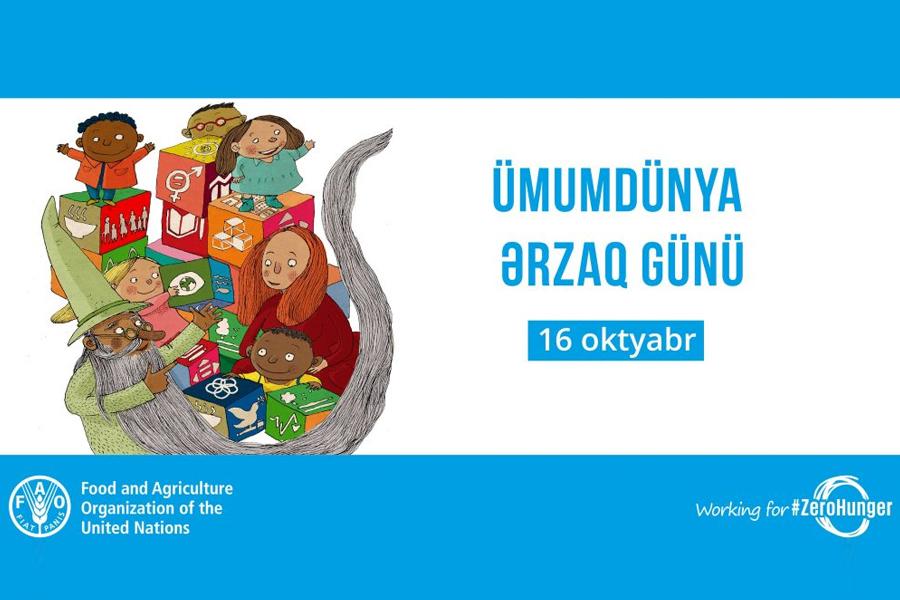World Food Day 2019. Healthy Diets for a #ZeroHunger World
16 October 2019
- Each year, the Food and Agriculture Organization of the United Nations (FAO) celebrates World Food Day on 16 October to commemorate the founding of the Organization in 1945.

Events are organised in over 150 countries across the world, making it one of the most celebrated days of the UN calendar. These events promote worldwide awareness and action for those who suffer from hunger and other forms of malnutrition and for the need to ensure food security and healthy diets for all. World Food Day is also an important opportunity to send a strong message to the public: We can end hunger and all forms of malnutrition in this lifetime and become the Zero Hunger Generation, but everyone needs to work together to achieve this goal.
For decades, the world was making progress in the fight against hunger. Now, the number of undernourished people is on the rise again. More than 800 million people, or roughly one in nine people, are going hungry. But food security in our times isn’t only a matter of quantity, it’s also a question of quality. Unhealthy diets have now become a leading risk factor for disease and death worldwide. There is an urgent need to make healthy and sustainable diets affordable and accessible to everyone.
Based on information provided by Food and Agriculture Organization of United Nations:
- While 30,000 plant species are known to be edible, worldwide, only 200 crops are cultivated on any significant scale and only 8 crops (barley, beans, groundnut, maize, potatoes, rice, sorghum and wheat) supply more than 50 percent of our daily calories. Think about this (and ask your policymakers to think about it, too).
- Over 800 million people suffer from hunger.
- 149 million children under five are stunted, while 49 million are affected by wasting.
- 670+ million adults and 120+ million boys and girls (age 5-19) are obese.
- 40 million children under age five are overweight.
- Unhealthy diets, combined with sedentary lifestyles are the No. 1 risk factor for disability and death from non-communicable diseases.
- Health problems linked to obesity cost national budgets worldwide an estimated USD 2 trillion in treatment each year.
- Different forms of malnutrition can co-exist within the same household and even the same individual during their lifetime and can be passed from one generation to the next.
- Environmental damage caused by the food system could increase 50-90% in low- to middle-income countries due to the increased consumption of processed foods and meat.
- Some 6,000 plant species have been cultivated for food throughout human history. Today, only 8 of them supply more than 50% of our daily calories.
- Climate change threatens to reduce both the quality and quantity of crops, lowering yields.


